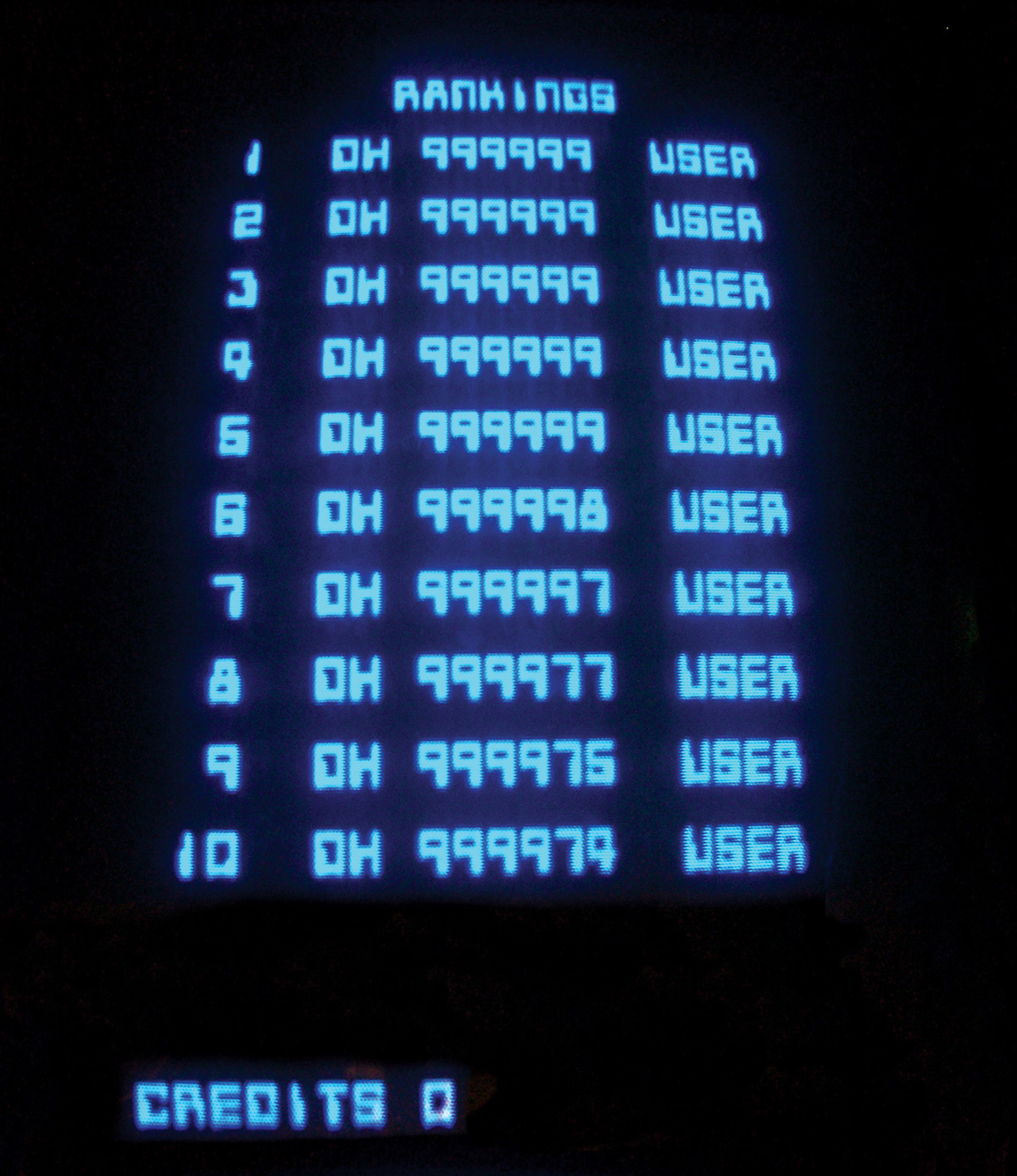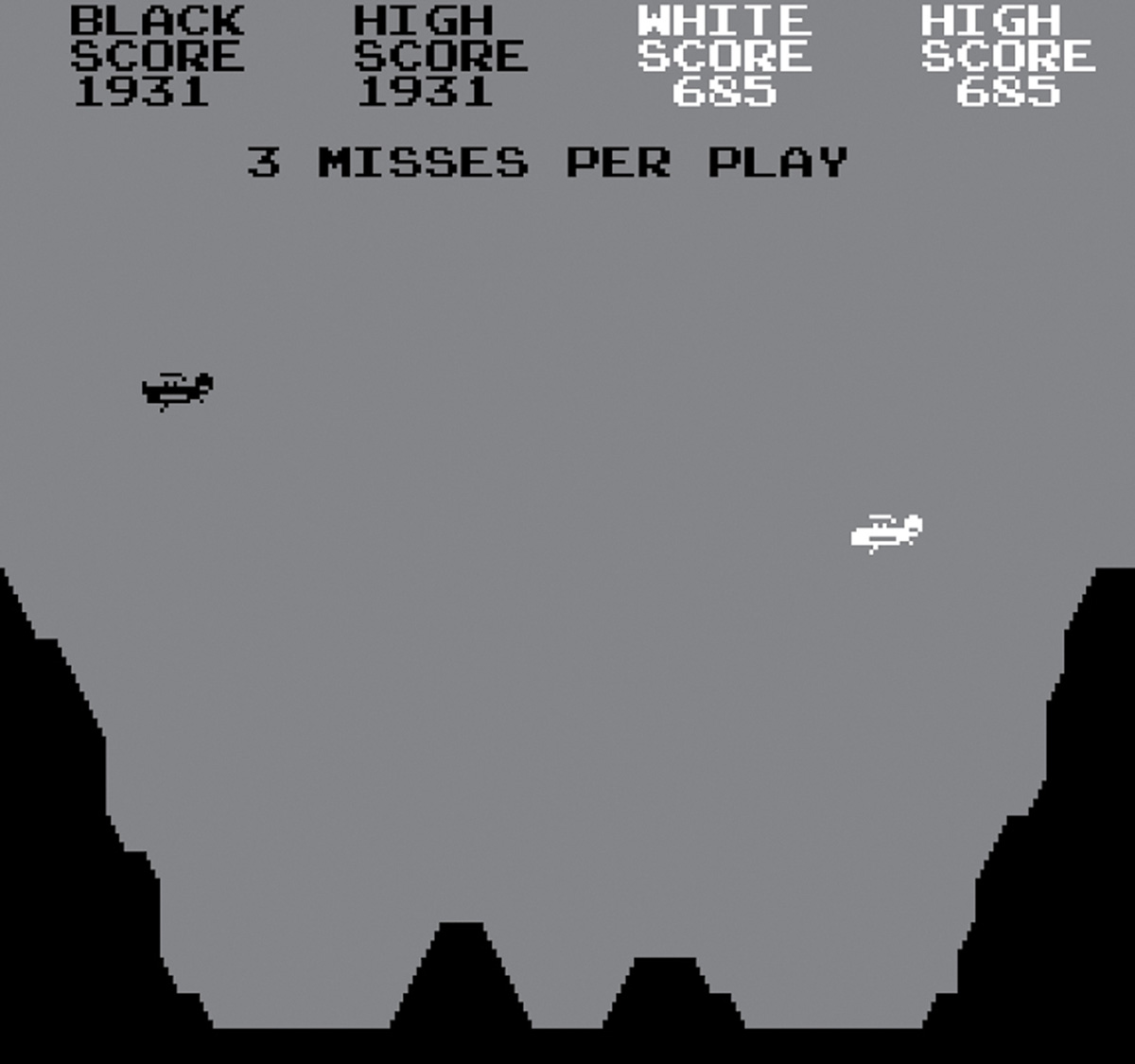09.
All that counts here is the score. As for who owns
the teams and who runs the league, best not to ask. As for who is
excluded from the big leagues and high scores, best not to ask. As for
who keeps the score and who makes the rules, best not to ask. As for
what ruling body does the handicapping and on what basis, best not to
ask. All is for the best in the best—and only—possible world. There
is—to give it a name—a military entertainment complex, and it
rules. Its triumphs affirm the rule of the game and the rules of the game.
10.
Everything
the military entertainment complex touches turns to digits. Everything
is digital and yet the digital is as nothing. It just beeps and blinks
and reports itself in glowing alphanumerics, spouting stock quotes on
your cell phone. Sure, there may be vivid 3-D graphics. There may be
pie charts and bar graphs. There may be swirls and whorls of brightly
colored polygons blazing from screen to screen. But these are just
decoration. The jitter of your thumb on the button or the flicker of
your wrist on the mouse connect directly to an invisible, intangible
gamespace of pure contest, pure
agon. It doesn’t matter if your
cave comes equipped with a Playstation or Bloomberg terminal. It is all
just an algorithm with enough unknowns to make a game of it.
11.
Once
games required an actual place to play them, whether on the chessboard
or the football field. Even wars had battlefields. Now global
positioning satellites grid the whole earth and put all of space and
time in play. Warfare, they say, now looks like video games. Well,
don’t kid yourself. War is a video game—for the military entertainment
complex. To them, it doesn’t matter what happens “on the ground.” The
ground—the old-fashioned battlefield itself—is just a necessary
externality to the game. Zizek: “It is thus not the fantasy of a purely
aseptic war run as a video game behind computer screens that protects
us from the reality of the face-to-face killing of another person; on
the contrary it is this fantasy of face-to-face encounter with an enemy
killed bloodily that we construct in order to escape the Real of the
depersonalized war turned into an anonymous technological
operation.”[3]
12.
The old class antagonisms have not gone away, but are hidden beneath levels of rank, where each measures their worth against others in the size and price of their house, the size and price of their vehicle, and where, perversely, working longer and longer hours is a sign of winning the game. Work becomes play. Work demands not just one’s mind and body but also one’s soul. You have to be a
team player. Your work has to be creative, inventive, playful—ludic, but not ludicrous.
13.
No
games are freely chosen any more. Not least for children, who if they
are to be the successful offspring of successful parents, find
themselves drafted into endless evening shifts of team sport. The
purpose of which is to build character, of course. Which character? The
character of the
good sport. Character for what? For the
workplace, with its team camaraderie and peer-enforced discipline. For
others, work is still just dull, repetitive work, but the dream is to
escape into the commerce of play—to make it into the major leagues, or
compete for record deals as a
diva or a
playa in the
rap game.
And for still others, there is only the game of survival. Biggie: “If I
wasn’t in the rap game / I’d probably have a key knee-deep in the
crack
game.”[4] Play becomes everything to which it was once opposed. It is work, it is serious, it is morality, it is necessity.
14.
The
old identities peter out. Nobody has the time. The gamer is not
interested in playing the citizen. The gamer elects to choose sides
only for the purpose of the game. This week it might be as the Germans
vs. the Americans. Next week it might be as a gangster against the law.
If the gamer chooses to be a soldier and play with real weapons, it is
as an
Army of One, testing and refining personal skill points.
The shrill and constant patriotic noise you hear through the speakers
masks the slow erosion of any coherent fellow feeling within the
remnants of a national space. This gamespace escapes all borders. All
that is left of the nation is an everywhere that is nowhere, an atopia
of noisy, righteous victories and quiet, sinister failures. Manifest
destiny—the right to rule through virtue—gives way to its latent
destiny—the virtue of right through rule.
15.
The
gamer is not really interested in faith, although a heightened rhetoric
of faith may fill the void carved out in the soul by the insinuations
of gamespace. The gamer’s God is a game designer. He implants in
everything a hidden algorithm. Faith is a matter of the ability to
intuit the parameters of this intelligent design and score accordingly.
All that is righteous wins; all that wins is righteous. To be a
loser or a
lamer
is the mark of damnation. Gamers confront each other in games of skill
that reveal who has been chosen by the game as the one who has most
fully internalized its algorithm. For those who despair of their
abilities, there are games of chance, where grace reveals itself in the
roll of the dice. Caillois: “Chance is courted because hard work and
personal qualifications are powerless to bring such success
about.”[5] The gambler may know what the gamer’s faith refuses to countenance.
16.
To be a gamer is to live by nothing but
level,
which has meaning only in relation to the levels ranked above or below.
Identity loses its qualitative dimension. Gamespace leaves its mark on
the gamer in the reduction of self to score. Questions of ethnicity,
sexuality, gender, or race, nation, tribe, or even species become
purely arbitrary. Play as whoever or whatever you like. Choose your
skin. Gamers don’t care. It’s all an agon of competing abilities, and
abilities all have their measure. It all ends in a summary decision:
That’s Hot! One hopes, or if not,
You’re Fired! Got questions about qualities of Being?
Whatever.
17.
So
this is the world as it appears to the gamer: a matrix of endlessly
varying games, all reducible to the same principles, all producing the
same kind of subject who belongs to this gamespace in the same way—as a
gamer to a game. What would it mean to lift one’s eye from the target,
to pause on the trigger, to unclench one’s ever-clicking finger? Is it
even possible to think outside The Cave™? Perhaps with the triumph of
gamespace, what the gamer as theorist needs is to reconstruct the
deleted files on those who opposed gamespace with their revolutionary
playdates. Debord, for example, who declared: “I have scarcely begun to
make you understand that I don’t intend to play the
game.”[6] Now there was a player unconcerned with an
exit strategy.

